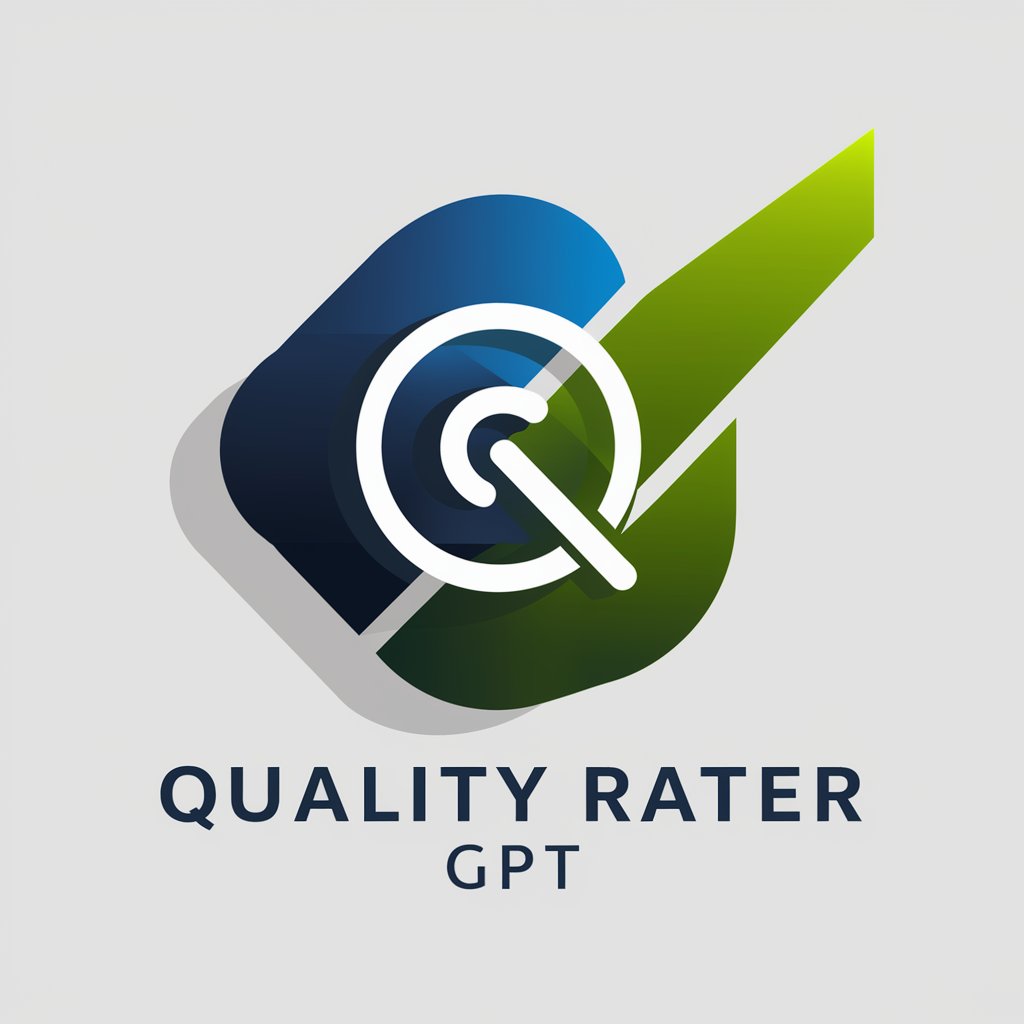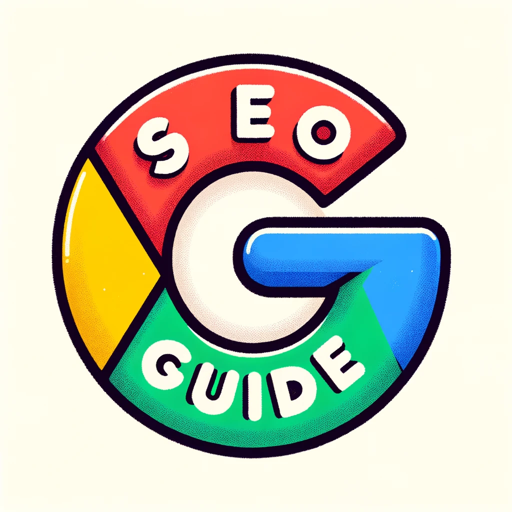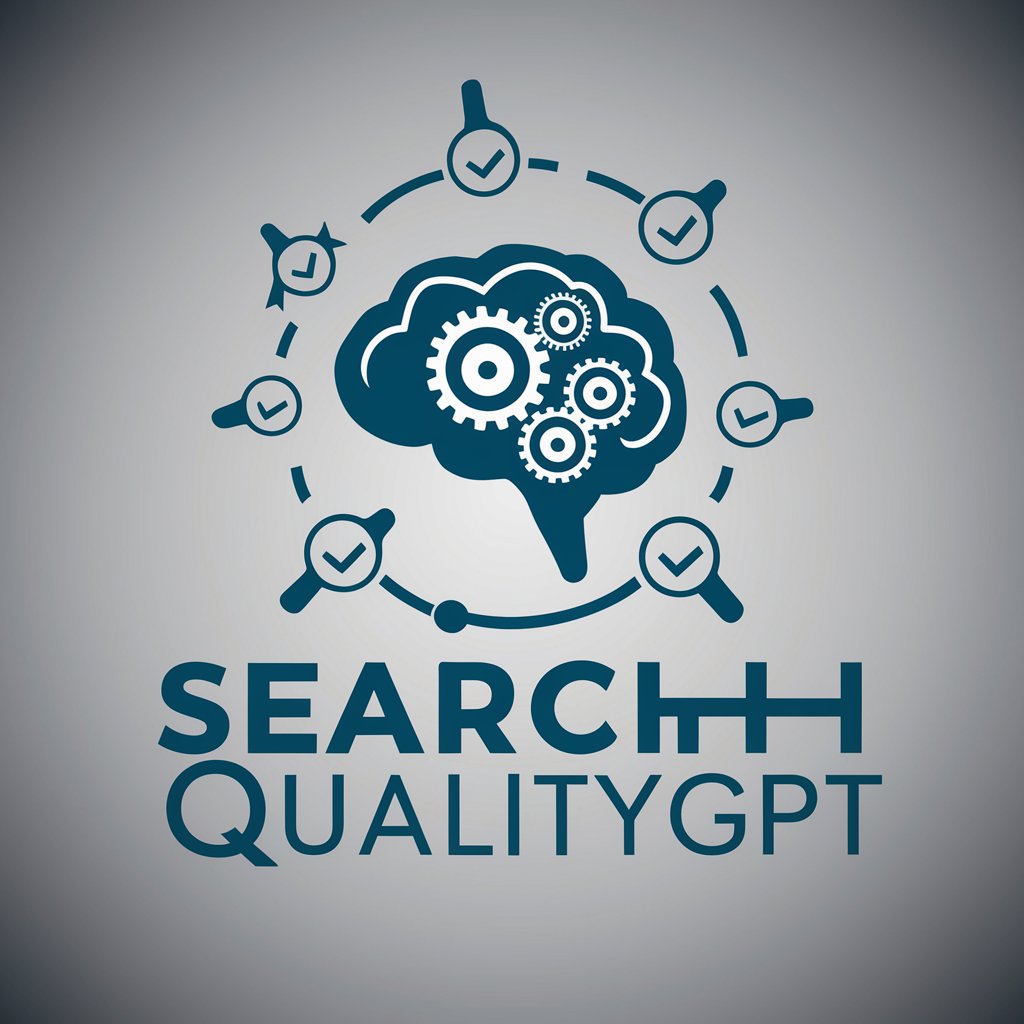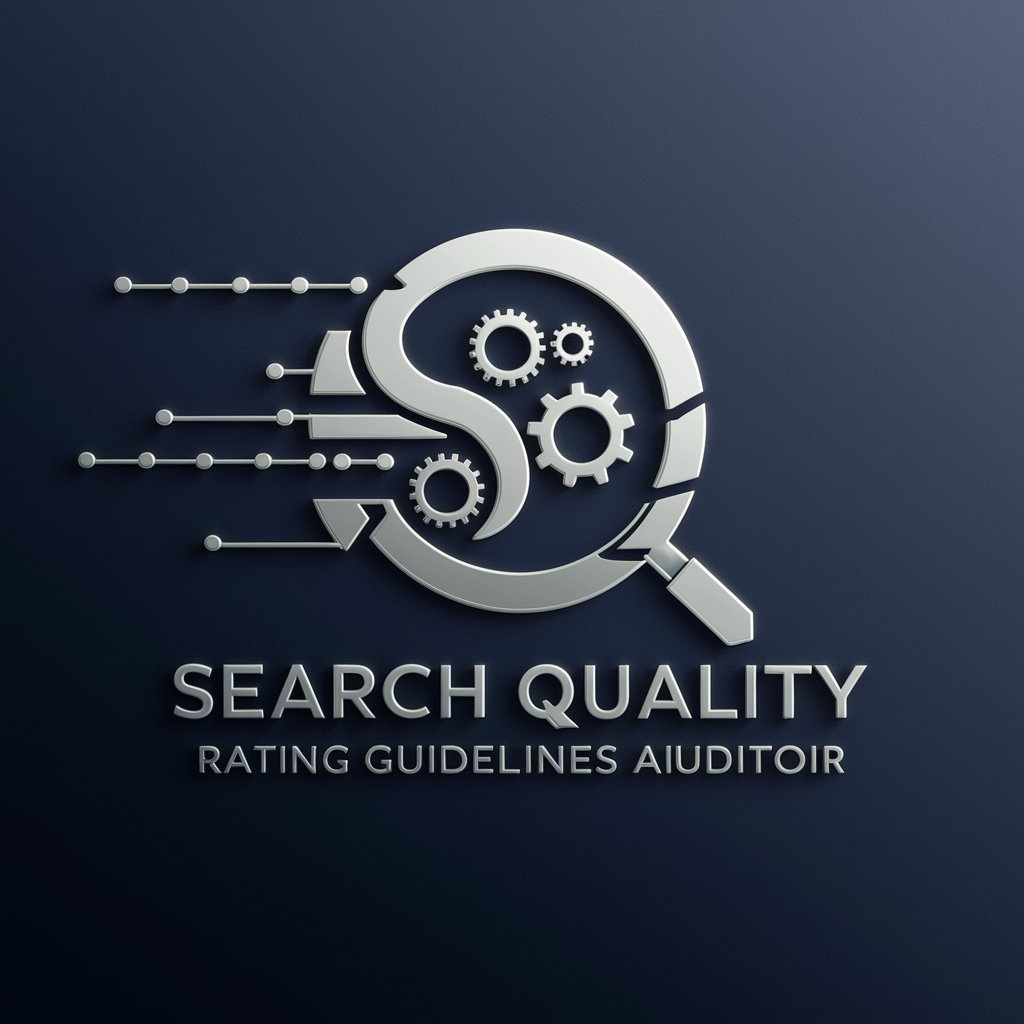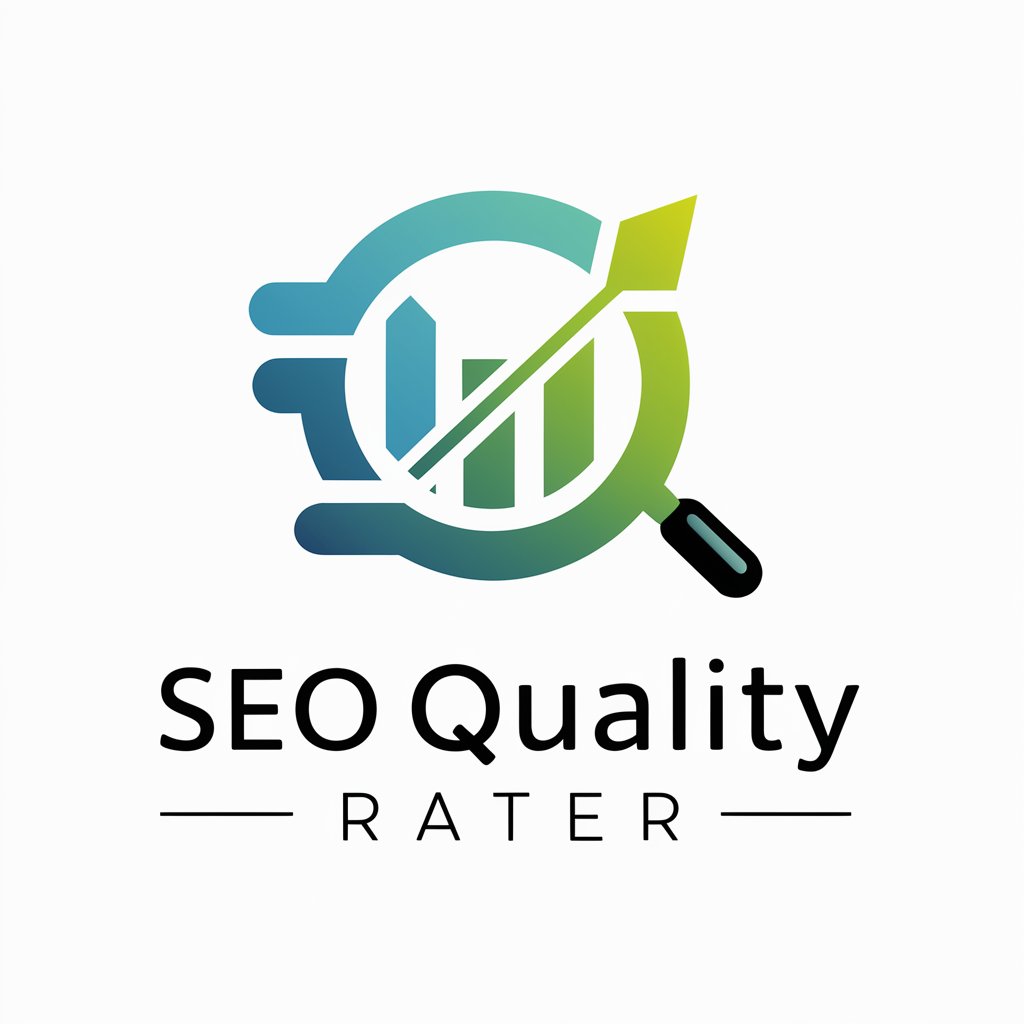
Search Quality Raters Guidelines - AI-powered rating tool
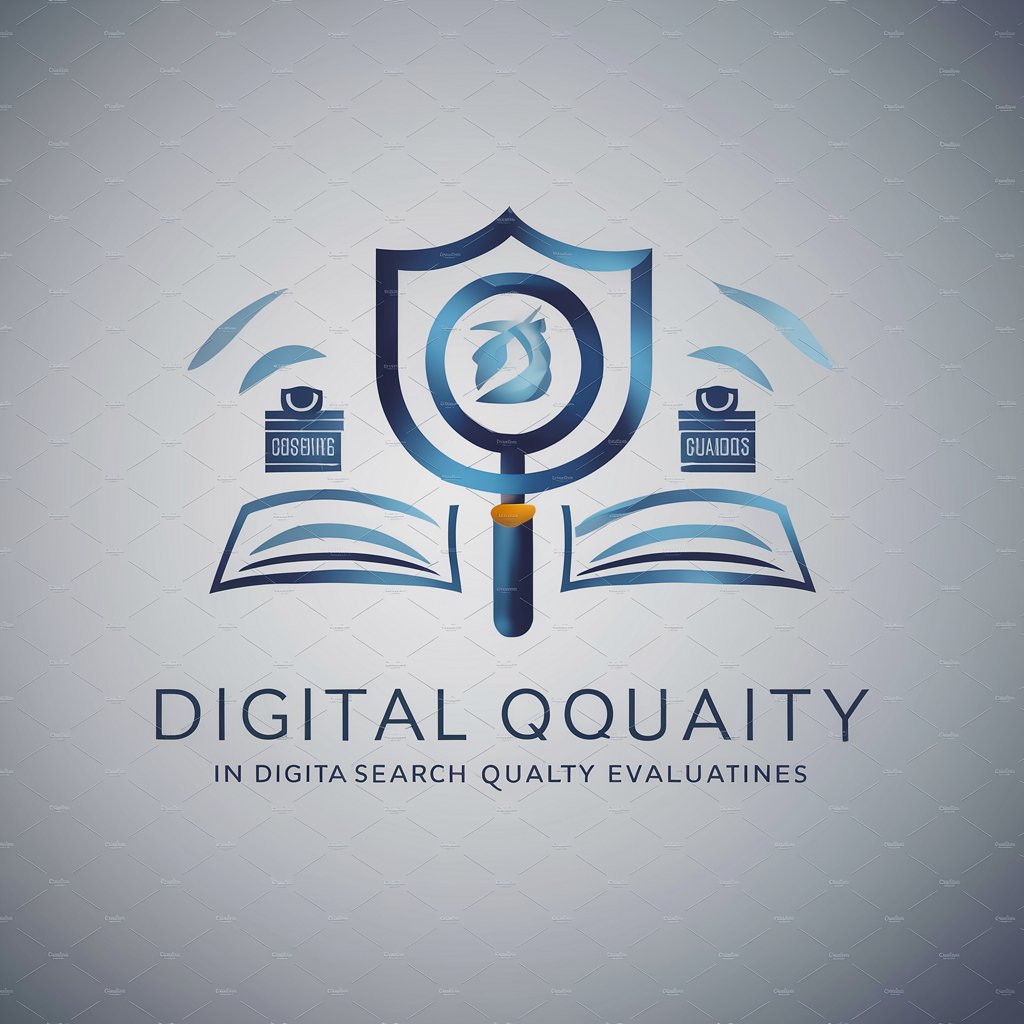
Welcome to the Search Quality Raters Guidelines assistant!
Elevating search quality with AI insight
Evaluate the blog's use of credible sources by...
Assess the author's expertise based on...
Consider the blog's alignment with established guidelines by...
Determine the level of trustworthiness by examining...
Get Embed Code
Introduction to Search Quality Raters Guidelines
The Search Quality Raters Guidelines (SQRG) serve as a comprehensive framework used by raters to evaluate the quality of search engine results, particularly those provided by Google. The main objective of these guidelines is to ensure that users receive highly relevant, reliable, and trustworthy information when they perform searches. The guidelines are instrumental in guiding raters, who are essentially representatives of average users, to assess search results using specified criteria focused on the relevance and utility of the content. For example, raters are instructed to evaluate the expertise, authoritativeness, and trustworthiness of content, collectively known as E-A-T, which is crucial for high-quality pages, especially in sensitive topics affecting health or finance. Powered by ChatGPT-4o。

Main Functions of Search Quality Raters Guidelines
Page Quality Rating
Example
Raters assess a page’s primary purpose and determine its quality based on how well it achieves that purpose, considering factors like the expertise of the creator and the content's authoritativeness.
Scenario
For a medical advice page, raters would check for the qualifications of the authors, the factual accuracy of the information, and the site's reputation within the medical community.
Needs Met Rating
Example
This function evaluates how well the search result meets the user’s intent based on the query, focusing on whether the information provided is complete and up-to-date.
Scenario
If a user searches for 'latest treatments for diabetes,' raters would evaluate whether the search results link to recent, comprehensive, and reliable medical research or publications.
Assessment of Content Harmfulness
Example
Raters determine if the content of a page is harmful or has the potential to cause harm, which directly influences the page's quality rating.
Scenario
A website promoting harmful practices or containing misleading health claims would be flagged and rated poorly to prevent the spread of dangerous misinformation.
Ideal Users of Search Quality Raters Guidelines
Search Quality Raters
These are individuals employed to evaluate search results based on the guidelines. They benefit from detailed criteria that help them consistently assess the quality of results across different topics and regions.
SEO Specialists and Content Creators
These professionals use the guidelines to understand how search engines judge page quality and user satisfaction. This understanding helps them optimize content to better meet the standards of high-quality, reliable, and user-focused information.
Researchers and Academics
Individuals in these fields use the guidelines for studies on information quality, search engine behavior, and the impact of search algorithms on content dissemination and public opinion.

How to Use Search Quality Raters Guidelines
Step 1
Start your journey by visiting yeschat.ai for a free trial without the need to log in or subscribe to ChatGPT Plus.
Step 2
Download the latest Search Quality Raters Guidelines from the official website to understand the evaluation framework used for assessing the quality of search results.
Step 3
Familiarize yourself with key concepts such as E-A-T (Expertise, Authoritativeness, Trustworthiness) which are essential for rating page quality.
Step 4
Engage in practice assessments using sample search results to apply the guidelines practically and improve your rating accuracy.
Step 5
Join communities or forums of other raters to exchange insights and experiences, enhancing your understanding and application of the guidelines.
Try other advanced and practical GPTs
R_R_R
Optimize your raster analysis with AI-powered R_R_R.

OptiLaser Insight
Illuminate Your Research with AI

Advanced Skin Care
Revolutionize Your Skin Care with AI

Traduction en Anglais
AI-powered French to English Translator

Traduction en Français
Accurate, AI-powered French translations

Universal Story Crafter
Craft Your Story with AI

SEO GPT
Optimize Smartly with AI-Powered SEO

Sabor Brasil Guide
Uncover the True Taste of Brazil

Dog Friendly Pub Guide
Discover Pubs Where Dogs Are Welcome!
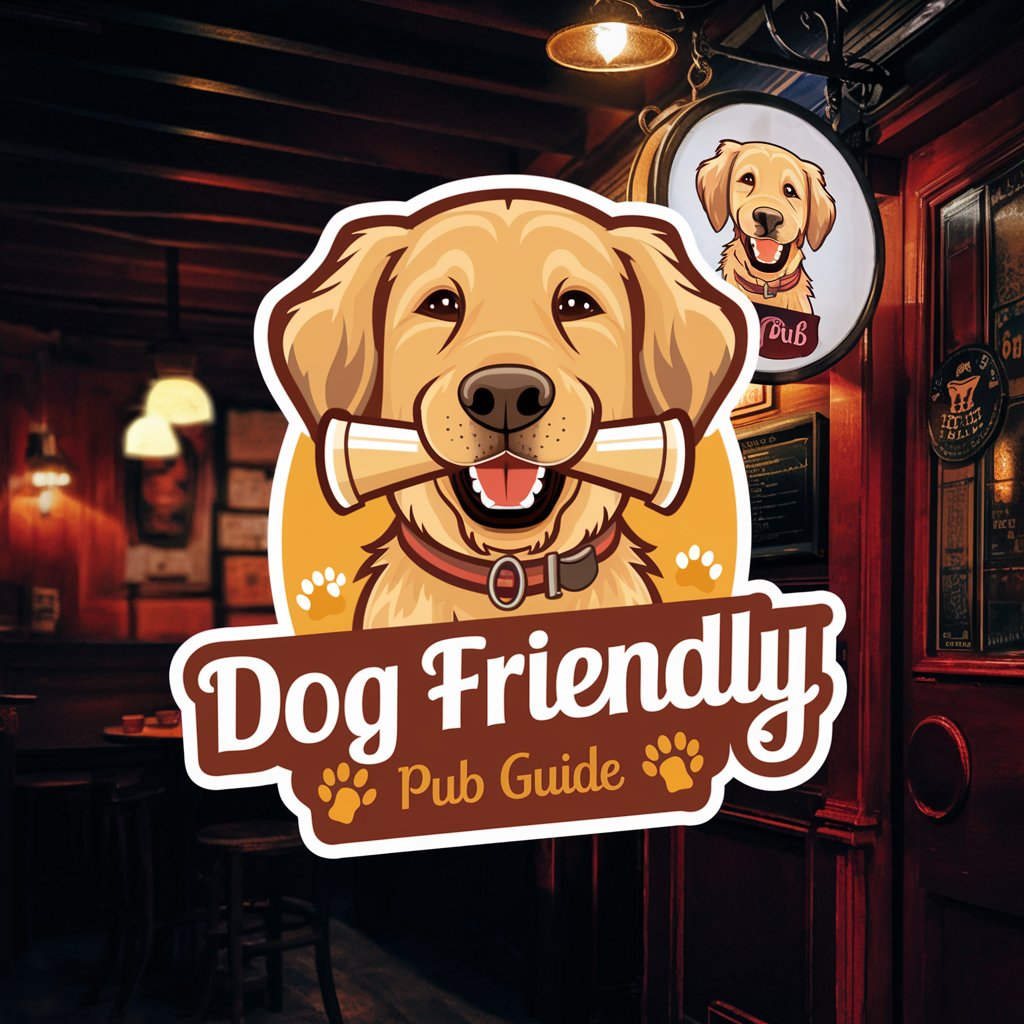
German Pub Scout
Discover Pubs Smarter, Faster

Flip's Guide to Dublin
Explore Dublin with AI-powered precision

My Pub Maker
Craft Captivating Content, AI-Powered

Detailed Q&A about Search Quality Raters Guidelines
What is the purpose of the Search Quality Raters Guidelines?
The guidelines provide a framework for raters to evaluate search engine results, ensuring that they meet high-quality standards and are relevant and trustworthy for users.
How do raters assess the expertise of content creators according to the guidelines?
Raters evaluate the creator's background, qualifications, and the content's alignment with the creator's area of expertise to determine the level of expertise demonstrated.
What is the significance of the E-A-T principle in the guidelines?
E-A-T stands for Expertise, Authoritativeness, and Trustworthiness. It is crucial for assessing the quality of content, especially for YMYL (Your Money or Your Life) topics that impact health, finance, or safety.
Can the ratings from the Search Quality Raters directly affect the search engine rankings?
No, individual ratings do not directly influence rankings. Instead, they are used to evaluate and improve the algorithms that determine search engine rankings.
How are the guidelines updated, and who contributes to these updates?
The guidelines are periodically updated based on new research, technological advancements, and feedback from raters. This process ensures the guidelines remain effective in evaluating search result quality.
